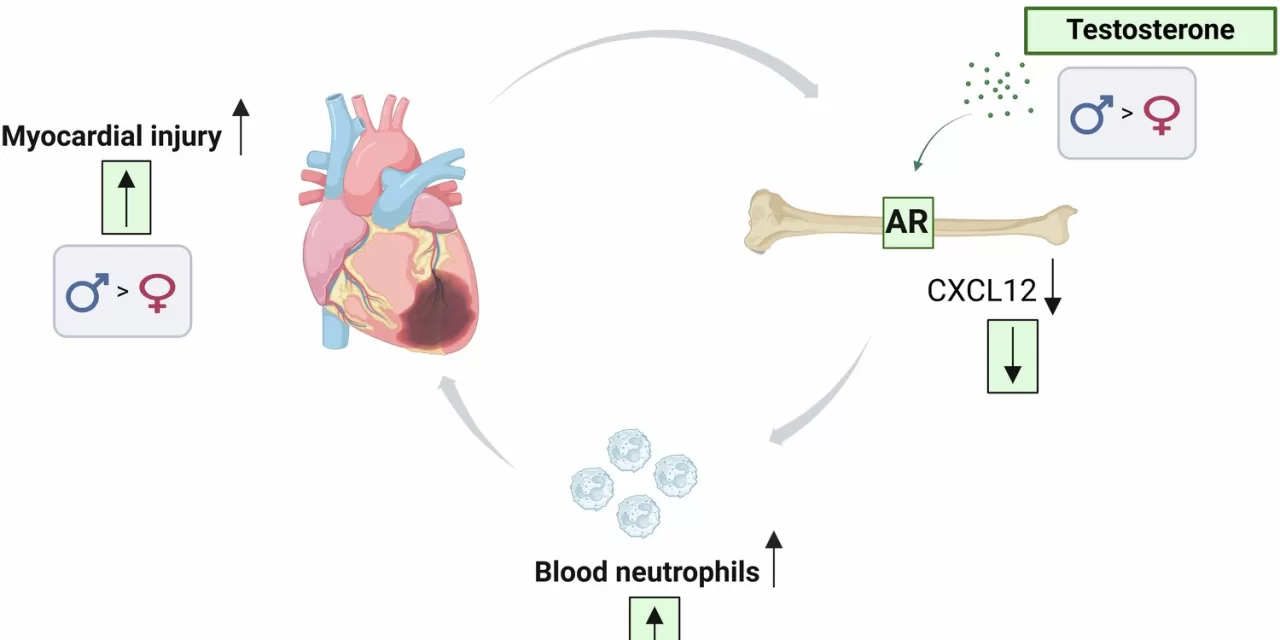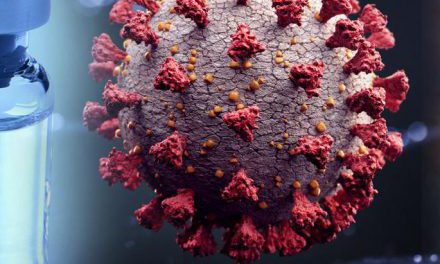New research highlights the role of testosterone in worsening cardiac inflammation.
A recent study conducted by the University of Gothenburg, Sweden, has found that testosterone exacerbates heart damage following a heart attack by increasing the release of white blood cells from the bone marrow. The findings, published in Nature Communications, could have significant implications for the treatment of heart attacks in both men and women.
Testosterone and Heart Damage
The study may explain why men typically experience more extensive heart muscle damage after a heart attack compared to women. The research, conducted using animal models and clinical trial data, highlights how inflammation contributes to heart damage and supports the ongoing exploration of anti-inflammatory drugs for heart attack treatment.
A heart attack occurs when blood flow to the heart is blocked, leading to muscle damage. This triggers a strong inflammatory response, with neutrophils—a type of white blood cell—playing a key role in intensifying the injury. The researchers observed that, in mice, neutrophil levels were higher in males than in females during the critical first days following a heart attack. Further analysis revealed that testosterone accelerates the release of neutrophils from the bone marrow, amplifying the inflammatory response.
Insights from the Study
Professor Åsa Tivesten, a lead researcher from the Sahlgrenska Academy at the University of Gothenburg and senior physician at Sahlgrenska University Hospital, explained the significance of these findings:
“We see that testosterone strengthens the inflammatory response in male mice, leading to more extensive heart injury. Testosterone plays a clear role in making inflammation worse following a heart attack,” Tivesten stated.
In addition to animal studies, the research team analyzed data from a clinical trial where patients received the anti-inflammatory drug tocilizumab shortly after experiencing a heart attack. The results showed that the drug reduced neutrophil levels and heart damage, with a significantly greater impact observed in men than in women.
“Our study shows how testosterone affects neutrophils through a previously unknown mechanism. These results illustrate the importance of considering sex differences in both research and healthcare. If these differences are overlooked, treatments may be less effective, particularly for women, who are often underrepresented in studies,” Tivesten added.
Future Implications
These findings underscore the need for further investigation into sex-specific treatments for heart attacks. As research continues to explore the role of inflammation in cardiac damage, targeted anti-inflammatory therapies may provide more effective treatment options, particularly for men who experience heightened inflammatory responses due to testosterone.
Disclaimer
This article is based on research findings and is for informational purposes only. It does not constitute medical advice. Patients should consult their healthcare provider for personalized medical guidance.
For more details, refer to the original study: Testosterone exacerbates neutrophilia and cardiac injury in myocardial infarction via actions in bone marrow, published in Nature Communications (2025). DOI: 10.1038/s41467-025-56217-x.












